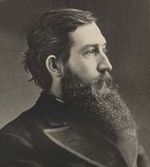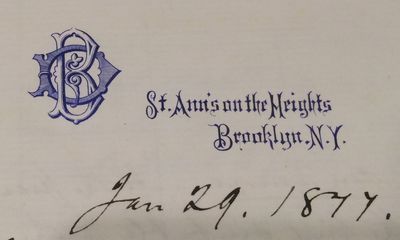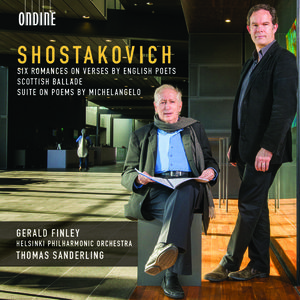Alex Ross's Blog, page 145
March 31, 2014
Ira Aldridge was not the first black Othello
Lolita Chakrabarti's play Red Velvet, now playing at St. Ann's Warehouse, is drawing new attention to the great nineteenth-century actor Ira Aldridge, whom I wrote about last year. One historical point should be emphasized: Aldridge was not the first black actor to play Othello. That honor would seem to belong to James Hewlett, who played the role at the African Theatre, in New York, in the early 1820s. Chakrabarti mentions Hewlett in the play, but viewers may miss his import. Shane White tells much more of Hewlett in Stories of Freedom in Black New York. Above, an image of Hewlett as Richard III.
Lim on ICE
There's an important concert at Miller Theatre on April 10: ICE will dedicate a Composer Portrait to Liza Lim, whose extraordinary piece Tongue of the Invisible made my list of the best recordings of 2013. The composer writes about the program and other upcoming events on her blog. Also new on CD, a Hat Art disc of Lim's orchestral works.
The music of Memphis Belle
Reading Mark Harris's masterly film history Five Came Back: A Story of Hollywood and the Second World War — a counterpart to Annegret Fauser's Sounds of War — led me to watch various of the wartime documentaries (or pseudo-documentaries) that are described in the book. One thing that struck me is that the music of the films is not as simplistic as one might expect. Gail Kubik's score for William Wyler's Memphis Belle has some surprisingly acerbic moments: listen for the angular bomber theme at 3:33. Kubik wrote in a similar style for the 1942 Office of War Information documentary The World at War.
Five Came Back left me with a deepened regard for Wyler, George Stevens, and John Huston, each of whom managed to transcend the limitations of propaganda. Yet I also felt sharp unease about the cumulative effect of these paeans to American might, which were conjoined to a relentless demonization of the Germans and the Japanese. Consider this script that Frank Capra concocted for FDR, as a welcome to new inductees: "Go to it, men! Show these self-appointed supermen that free men are not only the happiest and most prosperous, but also that we are the strongest." While Harris found no evidence that Roosevelt actually delivered the speech, it is evidence of an ominous mentality. The self-appointing of supermen did not end in 1945.
March 30, 2014
The anthem meanders
The most curious passage in Dudley Buck's Concert Variations on "The Star-Spangled Banner," published in 1868. The key signature is B major. The work probably served as a model for Charles Ives's far more daring Variations on "America," composed 1891-92.
March 29, 2014
Letterhead of the day: Dudley Buck
The distinguished American composer and organist was employed for a time at St. Ann's Episcopal Church, in Brooklyn Heights — a building that now serves as the chapel of the Packer Collegiate Institute. The St. Ann's congregation later moved to the Church of the Holy Trinity, on Montague Street, where Buck also played for a number of years. The latter is now known as St. Ann's and the Holy Trinity. Buck wrote any number of weighty works, including the Centennial Meditation of Columbia (with a text by Sidney Lanier), but he is best remembered today for his slightly zany variations on the "Star-Spangled Banner."
Appearances
 On Friday, at the University of North Carolina at Chapel Hill, I will give a lecture entitled "'Big Ballads of the Modern Heart': Sidney Lanier and Early American Wagnerism." This talk is related to the third chapter of my book-in-progress, Wagnerism: Art in the Shadow of Music. The following Monday, I'll be in Macon, Georgia — coincidentally, Lanier's hometown — to join a panel on classical-music criticism at the Macon Arts Alliance.
On Friday, at the University of North Carolina at Chapel Hill, I will give a lecture entitled "'Big Ballads of the Modern Heart': Sidney Lanier and Early American Wagnerism." This talk is related to the third chapter of my book-in-progress, Wagnerism: Art in the Shadow of Music. The following Monday, I'll be in Macon, Georgia — coincidentally, Lanier's hometown — to join a panel on classical-music criticism at the Macon Arts Alliance.
March 28, 2014
The Age of Steve
My colleague Steve Smith has announced on his Facebook page that he is leaving Time Out New York next month. In the thirteen years he's been editing classical-music listings at the magazine — much of the time he has edited the pop listings as well — he has documented better than any other writer the teeming energies of New York's new-music scene. He has also searched out the huge expanse of activity that lies beyond the city's best-known, highest-priced venues. I've learned so much from his work: he's changed and broadened my view of New York musical life. Steve is something of a hero in our world, and whatever publication or institution might sign him up in the future will have made, I believe, a very wise choice.
Brownlee's Rossini
Is there a finer Rossini tenor than Lawrence Brownlee? Many people would reflexively say "Flórez," but, like David Shengold in Time Out New York, I'm not so sure. Brownlee has a new Rossini disc on Delos, emphasizing less obvious fare: arias from, among other operas, Zelmira, La gazza ladra, L'occasione fa il ladro, and La donna del lago, which he sang magnificently last summer at Santa Fe, opposite Joyce DiDonato.
March 26, 2014
The writing on the wall
David Gockley, of the San Francisco Opera, reads it.
March 25, 2014
Gerald Finley sings Shostakovich
On a new Ondine CD, Finley sings Shostakovich's Six Romances on Verses by English Poets, in English, and the Suite on Poems by Michelangelo, in Italian. Thomas Sanderling conducts the Helsinki Philharmonic; for the English cycle, he uses the composer's full orchestration, which is aglow with dark color. Here is the great Sonnet LXVI.
Addendum: Ondine describes this as the "world première recording" of the full-orchestral version of the Six Romances, but, as Laurel Fay pointed out to me, Gennady Rozhdestvensky and Anatoli Safiulin recorded it back in 1986.
Alex Ross's Blog
- Alex Ross's profile
- 425 followers







